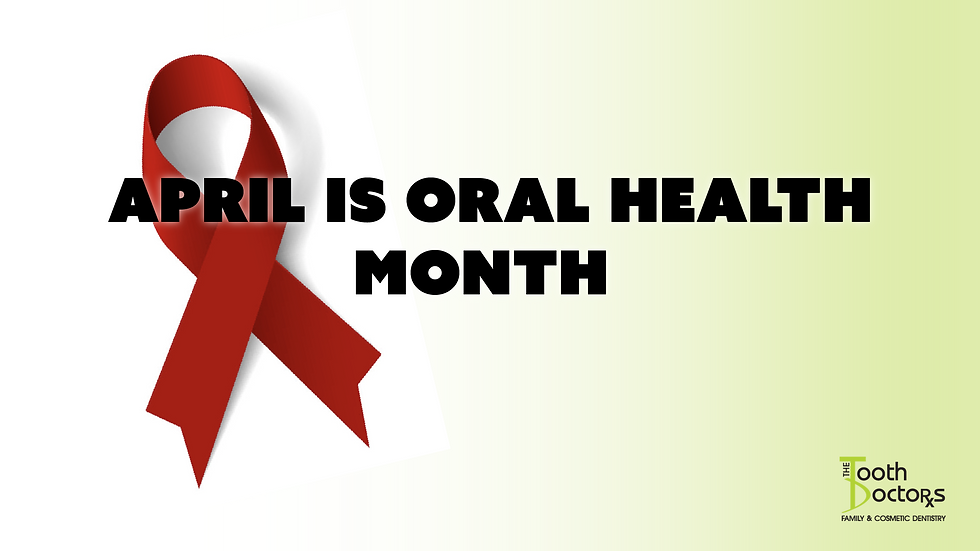Is Gum Disease Reversible?
- The Tooth Doctors

- May 11, 2012
- 2 min read
May 11, 2012 by admin
Gum disease happens in many forms. It is inflammation of the gums that can progress to affect the bone that surround and support the teeth. Gum disease is a major cause of tooth loss in adults.

Gingivitis is the early stages of gum disease. Bacteria in plaque builds up and causes the gums to become inflamed and red, swollen and easy to bleed during tooth brushing. Although the gums maybe irritated, the teeth are still firmly planted in their sockets. No irreversible bone or other tissue damage has occurred at this stage; making the disease still reversible.
Periodontal disease is the advanced stage of gum disease, when the supporting bone and fibers that hold your teeth in place are irreversibly damaged. Periodontal disease is when the inner layer of the gum and bone pull away from the teeth and form pockets. These small spaces between teeth and gums collect debris and can become infected. The body’s immune system fights the bacteria as the plaque spreads and grows below the gum line. When the bone supporting our teeth is destroyed in advance stages it can result in your teeth loosening, shifting or even needing to be removed.
Warning Signs of Gum Disease:
bleeding gums during tooth brushing and flossing
red, swollen or tender gums
gums that have pulled away from the teeth
persistent bad breath
pus between the teeth and gums
loose or separated teeth
Periodontal disease isn’t curable, but it is preventable. We can’t rebuild bone structure, but we can help prevent the disease from progressing. Good oral hygiene is a must. Brushing teeth thoroughly twice a day and flossing daily to help remove food and and to clean the area between teeth where your brush can’t reach. Regular dental visits and professional cleanings are also an essential way to help prevent gums disease.
📷



Comments